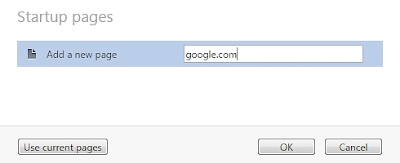Step By Step Guide To Delete Epoblockl ransomware
Various occurring infection dll files due to Epoblockl ransomware
jsproxy.dll 7.0.6001.22212, msihnd.dll 5.1.2600.0, CscMig.dll 6.1.7600.16385, NlsData0047.dll 6.0.6000.16386, mmdrv.dll 5.1.2600.0, mssign32.dll 5.1.2600.5512, rastls.dll 6.0.6001.18000, ipsmsnap.dll 5.1.2600.2180, mcrmgr.dll 6.1.2710.2732, dnsapi.dll 6.0.6000.20740, wininet.dll 8.0.7600.16385, inetcomm.dll 6.0.6001.18483, netfxperf.dll 1.1.4322.573, FXSCOM.dll 6.0.6000.16386, ocgen.dll 5.1.2600.5512
Get Better Technical Analysis Of Epoblockl ransomware
Epoblockl ransomware is another computer virus that makes your PC Possible Steps For sick. Its being a persistently nasty virus that keeps you from away from functioning normally and often requires something powerful to Delete it. This harmful virus Epoblockl ransomware is design relentlessly to infect your PC files, alter the way your computer operates or stop it from working altogether. Its estimated that the Epoblockl ransomware infect more than thousand millions of computer users, that now operate over the Internet.
Epoblockl ransomware find its way with sharing of free music file, online games, picture files with users. It also get distributed with different rogue software that get installed automatically into the PC, opening junk email attachments, installing mainstream software without reading its entire terms and license agreements. Epoblockl ransomware is mainly programmed to harm your PC by Deleting or modifying your PC files, reformatting your hard drive and so on. Others viruses simply replicates themselves or flooded a network with traffic, makes impossible to perform any online activity. Therefore, its wise to Delete Epoblockl ransomware as quickly as possible from your PC.
Quick Steps To Delete Epoblockl ransomware Possible Steps For From Windows PC Control Panel
Windows XP :-
At first click on the Start button -> Open Control Panel -> Go to Add or Delete Programs -> Locate Epoblockl ransomware and tap Delete Epoblockl ransomware.
Windows Vista :-
Tap Start button -> Open Control Panel -> Go To Delete Program -> Delete a Program Lies in Programs -> Find click on Delete Epoblockl ransomware.
Windows 8/ 8.1
Right Click -> Menu icon in the Left bottom corner -> Select Control Panel -> Select the Delete Program statement -> Delete Epoblockl ransomware.
Windows 10 :-
At first click on Win + X -> Windows Power Menu -> Click On Control Panel -> Tap Delete a Program -> Delete Epoblockl ransomware.
Delete Harmful Epoblockl ransomware Extensions From All Browsers
Mozilla Firefox :-
At first go to Mozilla Firefox and select Add-ons or press Ctrl + Shift + A together.
The list of all installed extensions as well as add-on gets opened on your screen.
Now, you have to select and Delete Epoblockl ransomware extensions.
Reset Mozilla Firefox :-
At first go to upper right corner of Firefox browser and tap Menu button and press Help.
Select the Troubleshooting Information option from Firefox Help Menu.
On that Troubleshooting Information, just click on Refresh Firefox option.
A dialogue box will appear before your screen and click Refresh Firefox button.
Open Google Chrome Click on its wrench icon -> Click Tools -> Extensions.
In that Extensions tab, select Epoblockl ransomware extensions and click on Trash icon.
Click on Delete button from confirmation dialogue box.
Reset Google Chrome :-
At first click on the Three stripes in Google Chrome Browser, select Settings option.
You will find show Advanced Settings option, in bottom of page, Then click on it.
Now, tap Reset Browser Settings options.
Again you have to click on Reset Option to Delete Epoblockl ransomware Possible Steps For.
First of all open Add-on Manager option, by going through Manage Add-ons, followed by Tools button.
Now, you have to find out Toolbars and extensions option in IE browser.
Here, just locate suspicious Epoblockl ransomware add-ons and extensions. Finally click on Disable option to Delete this threat permanently from IE browser.
Reset Internet Explorer :-
First of all click on the tools -> Internet Options.
Now, Internet Options dialogue box appears, tap Advanced tab -> Reset button.
In Reset Internet Settings, check Delete Personal Settings check-box, and tap Reset button.
Once you have followed this step, you just need to close and restart your Internet Explorer Browser.
Opera :-
At first click on the Customize and Control Opera button, located in the left hand part of Window. Select Extensions from drop down menu.
Select all harmful extensions from that list as Epoblockl ransomware, and tap Disable.
After that, you have to click the Customize and Control Opera icon and again and then select Settings.
Go to the On start-up present under Settings option.
Select options for Open a Specific page or Set of Pages option , and tap Set pages link.
Find all unwanted entries related to Epoblockl ransomware from Startup pages, click X button, and Enter preferred start page -> Ok.
Then after proceed with Search section under the Settings -> Choose Preferred Search Engine from list.
Finally Restart your Opera browser and check for any other issues.
Basic Guide To Delete Epoblockl ransomware From Task Manager
First of all press Alt + Ctrl + Del button to open your Windows task Manager.
Open Process Tab, once Windows Task Manger opens before your screen.
Select Malicious Epoblockl ransomware processes, and click on End Process button.
Clean Malicious Epoblockl ransomware Entries From Registry Editor
At first go to Start menu, and select run command by pressing Win + R keys from keyboard.
Here, type regedit → Ok , and open Windows Registry Editor.
Search for Epoblockl ransomware and Delete all corrupted entries related with Epoblockl ransomware.






































No comments:
Post a Comment